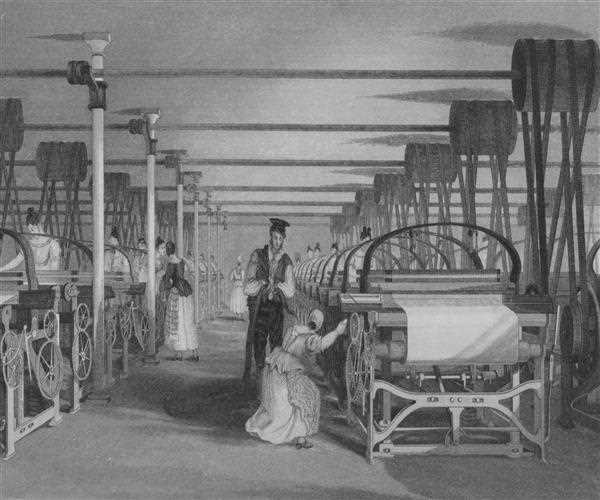The Industrial Revolution was a period of significant change that began in Great Britain in the late 18th century and transformed the world in the following decades. It was a time of rapid economic, technological, and social change that had a profound impact on the way people lived and worked.
Prior to the Industrial Revolution, the vast majority of people in Great Britain and other parts of the world lived in rural areas and worked in agriculture. They produced their own food, clothing, and other necessities, using traditional methods that had changed little for centuries. However, in the late 18th century, a series of innovations in textile manufacturing began to transform the economy.
One of the most important of these innovations was the invention of the spinning jenny by James Hargreaves in 1764. This device allowed a single worker to operate multiple spindles at once, greatly increasing the speed and efficiency of textile production. Other innovations followed, such as the water frame and the power loom, which further increased productivity and reduced the cost of producing textiles.
As a result of these innovations, the textile industry grew rapidly, leading to the development of other industries such as iron and steel production, transportation, and communication. The steam engine, invented by James Watt in 1775, was another important innovation that revolutionized transportation and industry by providing a source of power that was not dependent on human or animal labor.
The Industrial Revolution had a profound impact on society as well. It led to the growth of cities and the development of urban areas, as people moved from rural areas to work in factories and other industrial enterprises. This led to significant social changes, as people began to live and work in close proximity to each other, and as new forms of labor and social organization emerged.
The growth of industry also had a profound impact on the natural environment. As factories and other industrial enterprises grew, they produced large amounts of waste and pollution, leading to environmental degradation and public health problems.
Despite these challenges, the Industrial Revolution marked a turning point in world history. It led to significant increases in productivity and economic growth, and paved the way for modern industrial societies. It also had a profound impact on science and technology, as new innovations and discoveries were made that further transformed the world.

In addition to the technological innovations that drove the Industrial Revolution, there were also significant social and political changes that helped to enable it. One of the most important of these was the rise of capitalism, which provided the economic incentives and infrastructure necessary to support large-scale industrial production.
Capitalism is an economic system in which the means of production are owned and controlled by private individuals or corporations, who seek to maximize their profits through the production and sale of goods and services. It is characterized by the accumulation of capital, the exploitation of labor, and the pursuit of self-interest by individuals and corporations.
The rise of capitalism during the Industrial Revolution had a profound impact on society and the economy. It led to significant increases in wealth and economic growth, but also to significant inequalities and social unrest. Workers were often exploited and subjected to harsh working conditions, leading to the rise of labor unions and other forms of worker organizing.
Despite these challenges, the Industrial Revolution paved the way for many of the economic and technological innovations that have shaped the modern world. From transportation and communication to medicine and agriculture, the innovations of the Industrial Revolution have had a profound impact on every aspect of human life.